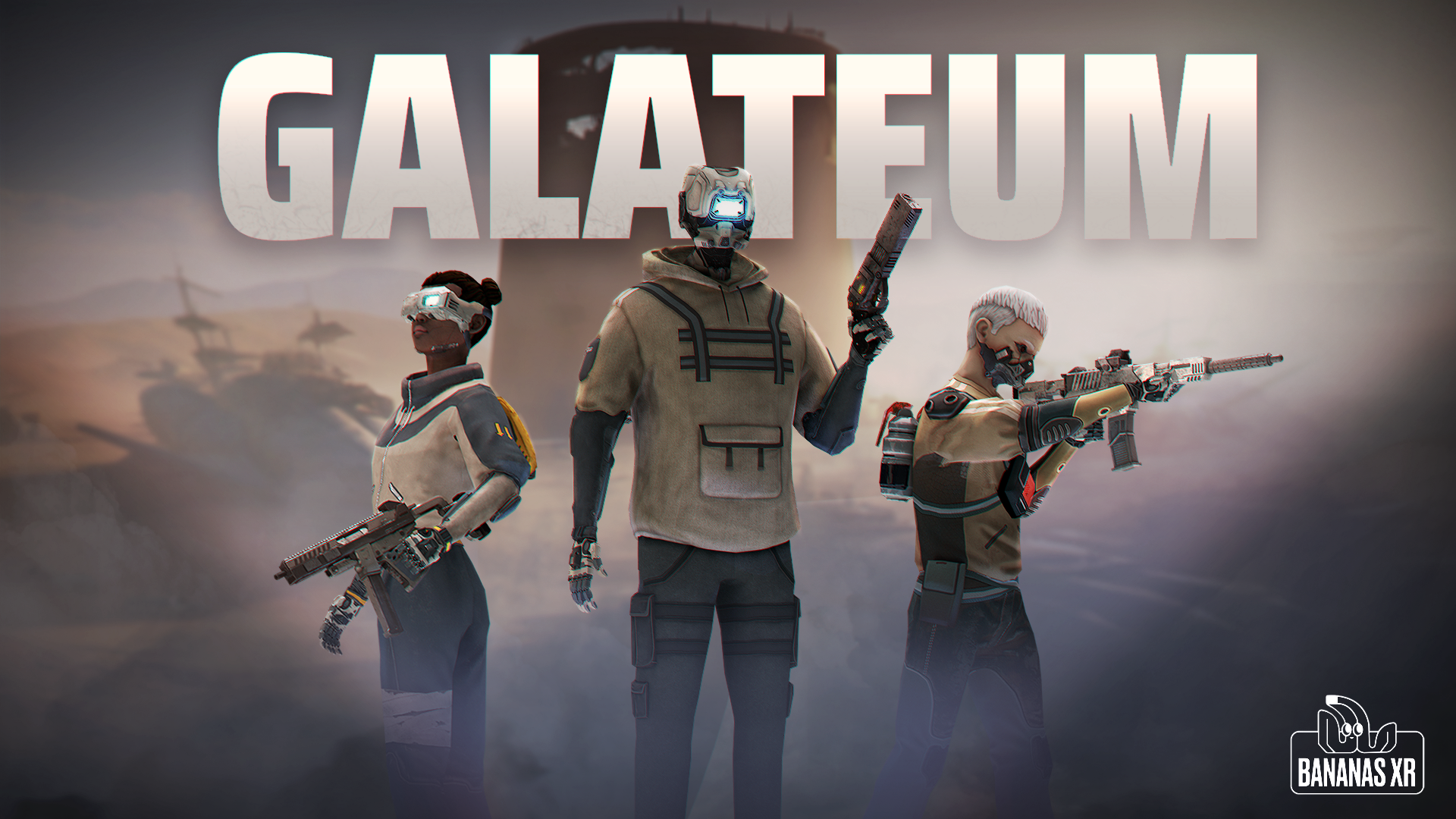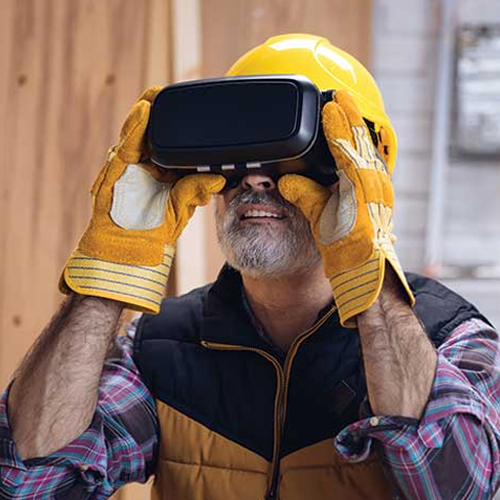VR Multiplayer Competitive Shooter Game
Introduction
In this case study, we’ll explore the development journey of the Galateum. Our objective was to create an adrenaline-pumping experience where players engage in intense battles within a virtual environment. Let’s dive into the key aspects of this project.
Project Overview
- Title: Galateum
- Platform: Meta Quest 2/3
- Genre: First-Person Shooter (FPS)
- Team Size: 2 members
- Link to Meta AppLab game page
Problem Statement
The goal of the project was building a VR shooter that combined fast-paced gameplay, realistic weapon mechanics, and competitive multiplayer features.
The client have approached us with a problem of developing multiplayer aspects of the game.
Our challenge was to design and implement online features for the game, including network synchronization of the players activities, shooting, damage detection, voice chat. Besides the features for online gaming it was required to develop backend server to store players data, including user profiles, statistics, friends and teams information. Our responsibilities also included setting up Unity services for game server hosting and matchmaking. The client also asked us to create a robust CI/CD system to simplify and optimize project build and deployment process.
Process
1. Conceptualization
Idea Generation: Initially the client had an idea of the battle-royale styled game, in vein of PUBG or Population One. During development the concept was transformed to a team-based futuristic arena-style deathmatch shooter.
Market Analysis: Together with the client we have studied existing VR online shooters to identify trends and player preferences.
2. Design
Game Mechanics: The client have defined core gameplay mechanics, including movement, shooting, and reloading. Also the visual assets and UI were provided by the client. We were working in close cooperation between designers and visual artists to speed-up the prototyping.
Weapon Systems: Working together with client’s developers we have designed a variety of futuristic weapons with unique attributes, including grenades and special abilities.
Level Design: The client have created a number of competitive maps prototypes with strategic chokepoints and cover spots. We took part in extensive testing of the maps, to identify weak spots and provide a best environment for future battles.
3. Development
Unity 3D: The XR project was built upon Unity engine, which is our core competency. Besides using Unity engine for development we rely on the Unity services framework to implement multiplayer aspects. We are using game server hosting, matchmaking and devops tools that Unity provide. And of course the main backbone of the multiplayer project is Photon Fusion. Knowledge of the Photon aspects is also a strong competency the we provide for our projects.
Backend development: Besides Unity development we also use our extensive experience in web development to create a performant backend server and database for storing players information. We utilize NodeJS for the web-application and MongoDB for this aspect of the project.
4. Testing
Alpha Testing: Conducted internal playtests to fine-tune gameplay balance.
Beta Testing: Invited external players to stress-test servers and provide feedback.
Performance Optimization: Ensured smooth performance on various hardware configurations.
5. Launch
Meta AppLab Submission: Prepared the game for release on the Meta platform while passing strict review process.
Results
Project release: Finally the project have passed the Meta review and was sucessfully released for the public in the App Lab.
Lessons Learned
Network and performance optimization: Adapting to performance limitations of the mobile XR platform is crucial for competitive gameplay. More importantly is not to sacrifice the visual fidelity, but provide a suitable gameplay experience. We learned a lot about developing for the mobile XR device while working on the project.
Backend: Fast and reliable backend server is absolute must when creating an online multiplayer project. We leveraged our core strength of developing business web-application and applied our experience to this project.
Anti-Cheating Measures: Building application in such a way as not to leave any exploits or possibility of players cheating is one of the most important requirement for online multiplayer project. We commited fully to making sure that the project works equally for every player without giving advantage to users who practice unfair tactics.
Conclusion
Galateum exemplifies our commitment to pushing the boundaries of VR multiplayer gaming. The journey from concept to launch was exhilarating, and we’re proud to contribute to the VR esports landscape.




